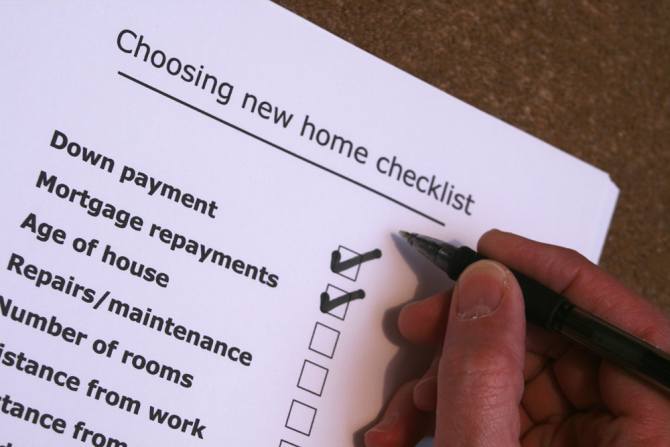 | « Back to article | Print this article |
Home buying experience can be an overwhelming one. Right from the house hunting process to finalising it to funding it and ultimately registering it can zap home buyers of their energies. To ease the process of decision making while buying a house, we have put together important factors you need to consider.

Photograph: Alan Cleaver/Wikimedia Commons
When Ashutosh Raina, a Mumbai-based marketing consultant was considering to buy a house, a couple of years ago, he was in two minds. He was not sure of buying a house. He lived in Mumbai with his wife and he was from a smaller metro. He was used to living in a big independent house.
“When we went looking for a house, we started looking for a two-bedroom house. All the flats we saw were above Rs 1 crore. We were dumbfounded. A lot of factors became prohibitive for us to buy a two-bedroom house. Then we worked out our options, financial situation and bought a one bed-room apartment,” said Raina.
Everybody has a set of requirements while buying a house and having to settle for something less always leaves that dissatisfied feeling somewhere within. With better planning we can avoid Raina’s situation. Hence, we put together a list of important factors for you to consider if you are planning to buy a house in the near future.
Down payment -- a big burden
If you are considering down payment from a percentage perspective, it might seem a meagre 20 per cent. But if you see in actual terms, it is quite a big amount. In a city like Mumbai where a two-bedroom apartment easily touches Rs 1 crore, the 20 per cent of it amounts to Rs 20,00,000! It is not a small amount. So how does one arrange the down payment amount?
Bridge loans
Many employers offer a loan to employees at nominal interest rates. Check if your employer can offer you that loan. There are many families that run banks for their own members who offer bridge loans. Check if you or your spouse has any such option.
Savings
If you have a fixed deposit, banks do offer you a loan against these deposits. You also get a loan up to 80 per cent of your sum assured in insurance policies. Or if you feel any of your policies are not doing well enough you can simply withdraw those policies to fund your down payment.
You could also consider pledging your gold to get a loan.
Negotiate with the builder
You can talk to your builder. In many cases they do oblige and let you pay it in smaller amounts.
Cibil Credit Score
We at CreditVidya, often advice our customers to check their credit score from Credit Information Bureau of India Limited (Cibil) regularly. This helps you in saving time when you are in a hurry to get a loan. It is important to understand that the lenders look two perspectives: firstly, your ability to repay and secondly, your intention to repay. Your Cibil score portrays your willingness or intention to repay.
The following table shows how you can rank high on getting both these things right and will ensure a speedy loan approval:

Photograph: Alan Cleaver/Wikimedia Commons
Important pointers to keep in mind while applying for a home loan:
Do not fall for fixed rate or floating rate game. Calculate the total interest outgo in absolute terms and then take a call.
Do not choose a lender who is not very well known.
We strongly advice you to get a quote from 4-5 banks before you finalise on your loan.
Please note: this does not mean you have to apply to 4-5 banks to get a quote. Visit these banks personally, talk to home loan department executive. They give you a rough estimate on maximum loan they can offer you, the interest rates and also question them on all kind of charges you will have to bear while closing the loan. When you visit these banks do remember to take the copies of home loan documents.
With risk-based lending process slowly making an entry in the Indian market, it is important to understand that you stand a chance to get better rate of interest if you have a healthy Cibil score.
Assess your expenses and how much you would pay as an EMI on a monthly basis before your decide to take the loan. Do not borrow more than you can afford.
The author is a credit expert with 10 years of experience in personal finance and consumer banking industry and another 7 years in credit bureau sector. Rajiv was instrumental in setting up India's first credit bureau, Credit Information Bureau (India) Limited (CIBIL). He has also worked with Citibank, Canara Bank, HDFC Bank, IDBI Bank and Experian in various capacities.